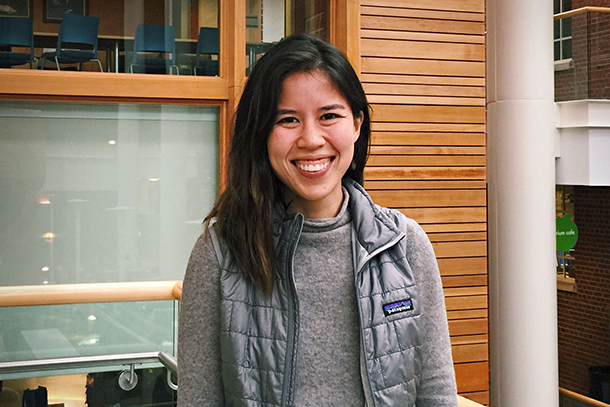Medical students have a desire at heart to help and heal people. It propels us forward through years of rigorous training. I realized, however, larger “upstream” decisions can hinder our ability to care for patients. Limited or outdated policies, regulatory standards and guidelines may set roadblocks that seem like insurmountable challenges. Through dedicated public health training, however, one may develop skills to transform these challenges into opportunities to affect positive change, both for individual patients and entire populations.
I came to realize this while rotating on the wards at Los Angeles County+USC Medical Center as a third-year medical student. LAC+USC serves an enormous, diverse pool of patients. Many are uninsured, live below the poverty line or are recent immigrants. Most face inordinate challenges in navigating the health care system, unaware of options or means to effectively communicate with providers. From a systematic standpoint, structural barriers such as long wait times for important procedures may hinder efficient delivery of life-saving therapy. I grew frustrated by how powerless I felt in changing these larger systems to get services to patients sooner and help inform them of important options.
Medical school largely focuses on developing clinical skills to deliver holistic yet individualized care to patients. It is not, however, designed to sufficiently train students in public health research or public policy capable of impacting programmatic change. My desire to develop this foundation early in my career motivated me, with the blessing of my mentors at the Keck School of Medicine of USC, to take a two-year break from clinical medicine to pursue a Master of Public Health at the University of North Carolina at Chapel Hill. My early interest in global health and my passion for working with mothers and children naturally led me to UNC’s Department of Maternal and Child Health.
My public health training brought opportunities to study under leaders in the field. I took a course on health care policy taught by one of President Barack Obama’s chief advisers in creating the Affordable Care Act. I developed skills in biostatistics, epidemiology, monitoring and evaluation, implementation science and mixed-methods research that enable me to ask bigger questions to affect change. Perhaps most importantly, for the past year, I served as a research fellow at FHI 360, working with their contraceptive technology innovation team. While at FHI 360, I participated in research endeavors focused on better understanding the needs and preferences of contraceptive users in developing country settings. I worked on clinical trials for new contraceptive products, conducted systematic reviews, traveled to India as an FHI 360 representative, and generally strengthened my skills in global health research and leadership.
Cultural dynamics can affect health care options
In India and many other developing countries, socioeconomic status and cultural dynamics may strongly affect access and knowledge of health care options. One arena in which this is manifested is family planning. The World Health Organization estimates 214 million women of reproductive age in low and middle-income countries who want to avoid pregnancy are not using a modern contraceptive method. An IUD might be the ideal option, but obstacles such as cost and provider-training keep this out of reach for women in poorer countries.
There are even larger issues upstream from method provision in clinics: decisions regarding if, when and how many children to have are all too often driven by familial or societal pressures, rather than a woman’s autonomous choice. Ensuring access to preferred contraceptive methods for women and couples is not only essential to securing the well-being and autonomy of women, but also to supporting the health and development of communities.
Currently, I’m pursuing a Fulbright Research Grant to conduct a study in rural Uganda that examines whether combining family planning visits for mom with pediatric visits for her children might improve attendance for both. Rather than dictate change, our goal is to build upon existing resources and work within the cultural fabric of Ugandan society, applying analytical skills to create an intervention that is acceptable and sustainable.
My experiences in clinical medicine and global health research at USC and UNC clarified my career goals to serve as both a clinician and scientist. The support of my mentors in finding an educational path best for me means I’ll return to clinical medicine with a new skill set I hope to use throughout my career, as well as a dedication to facing upstream challenges as exciting opportunities for positive change.
— Lauren Maldonado, a fourth-year medical student at the Keck School of Medicine of USC, has finished a two-year Master of Public Health program in maternal and child health at the Gillings School of Global Public Health at the University of North Carolina at Chapel Hill. She is also a global health research fellow for contraceptive technology innovation at a nongovernmental organization that provides solutions to pressing problems across society, including health care. She spoke with Paul Boutin of HSC News.


